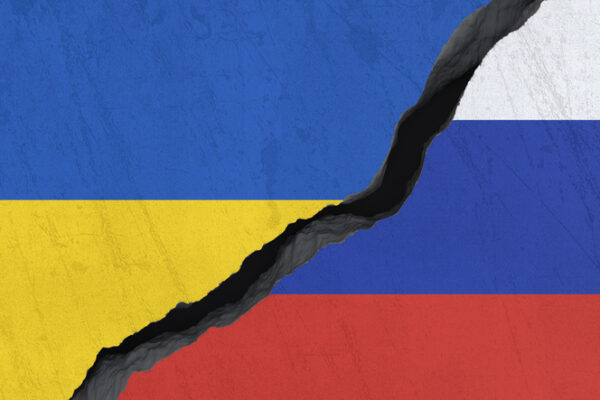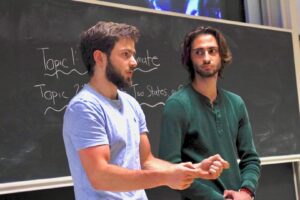During a news conference in December, Russian President Vladimir Putin evoked the Lone Star State to defend his country’s annexation of the Ukrainian peninsula of Crimea. “What,” he said, “like Mexico and the U.S. never had territorial disputes? Who did California used to belong to? And Texas?” Although few people question that Texas is part of the United States, Putin said that most countries still recognize Crimea as part of Ukraine.
Texas comes up as a topic of discussion in the Kremlin more often than one might expect (like last year’s frozen wind turbines). Texans are grappling with urgent problems close to home, so why should we care about Russia’s invasion of Ukraine?
For one, Putin’s actions, unprecedented since World War II, have broader implications that should concern all of us. And though geographically distant, this war will have concrete impacts on Texans. The most basic example is that many Texans are Ukrainian, or have Ukrainian ties, and have asked for support.
This war is an escalation from Russia’s annexation of Crimea in 2014 and partial occupation of eastern Ukraine that it has maintained, though denied, ever since. After massing an estimated 190,000 troops around three sides of Ukraine, Putin moved to recognize Russian-backed separatist regions — the Donetsk and Luhansk People’s Republics — and green-lit military action “abroad.” And now, Russia has brought a full-fledged war of aggression to the European continent.
One of Putin’s main justifications for military action should give us particular pause. In an hourlong speech recently, he made a factually inaccurate historical argument claiming that Bolshevik leader Vladimir Lenin invented Ukraine and that the country has no right to exist within its internationally recognized borders. Russian state media have aired maps of Ukraine cut into pieces that it labeled as “gifts” from Russian tsars and Soviet rulers.
But he’s wrong. Ukraine has its own rich national history that dates back more than 1,100 years. It has its own language, culture and traditions, not to mention its own national security interests. Putin expressed bitterness in his speech that Ukrainians in recent years have toppled statues of Lenin in avowed acts of decommunization. He then issued what was clearly intended as a threat to Ukraine’s territorial integrity: “You want decommunization? Very well, this suits us just fine. But why stop halfway? We are ready to show what real decommunizations would mean for Ukraine.”
If Putin truly believes this version of history, and there are many indications that he does, then he sees the annexation of further Ukrainian territory as the correction of a historical wrong. Under that rationale, Spain, France and Mexico would each be justified in launching wars to reclaim Texas. To most, this proposition sounds absurd on its face. And it is. But as residents of a state whose iconography commemorates a history of sovereignty under six different flags, Texans are in a unique position to appreciate the grim implications of its logic.
Ukrainians are facing this distorted logic backed by the full force of the Russian military. Texans should be appalled that a world leader is weaponizing false historical grievances to deny self-determination to the people of an independent country. Putin is trying to use this narrative to sell this war—mostly to his own people but also to the international community. We must reject that it has any basis in reality. There is much for us to read and learn from to help us in that endeavor.
It is too soon to say how or when this war will end. There is a significant bipartisan consensus behind strong sanctions against Russia, although they are unlikely to change the situation on the ground. In reality, there is not much that most of us can practically do. But we can and must educate ourselves so that no one can ever use the abuse of history as justification for bloodshed.
Rebecca Adeline Johnston is a doctoral candidate in the Department of History at The University of Texas at Austin.
A version of this op-ed appeared in the Dallas Morning News, Austin American-Statesman, San Antonio Express News, Amarillo Globe-News, Lubbock Avalanche Journal, Abilene Reporter News,Waco Tribune Herald and the Houston Chronicle.




